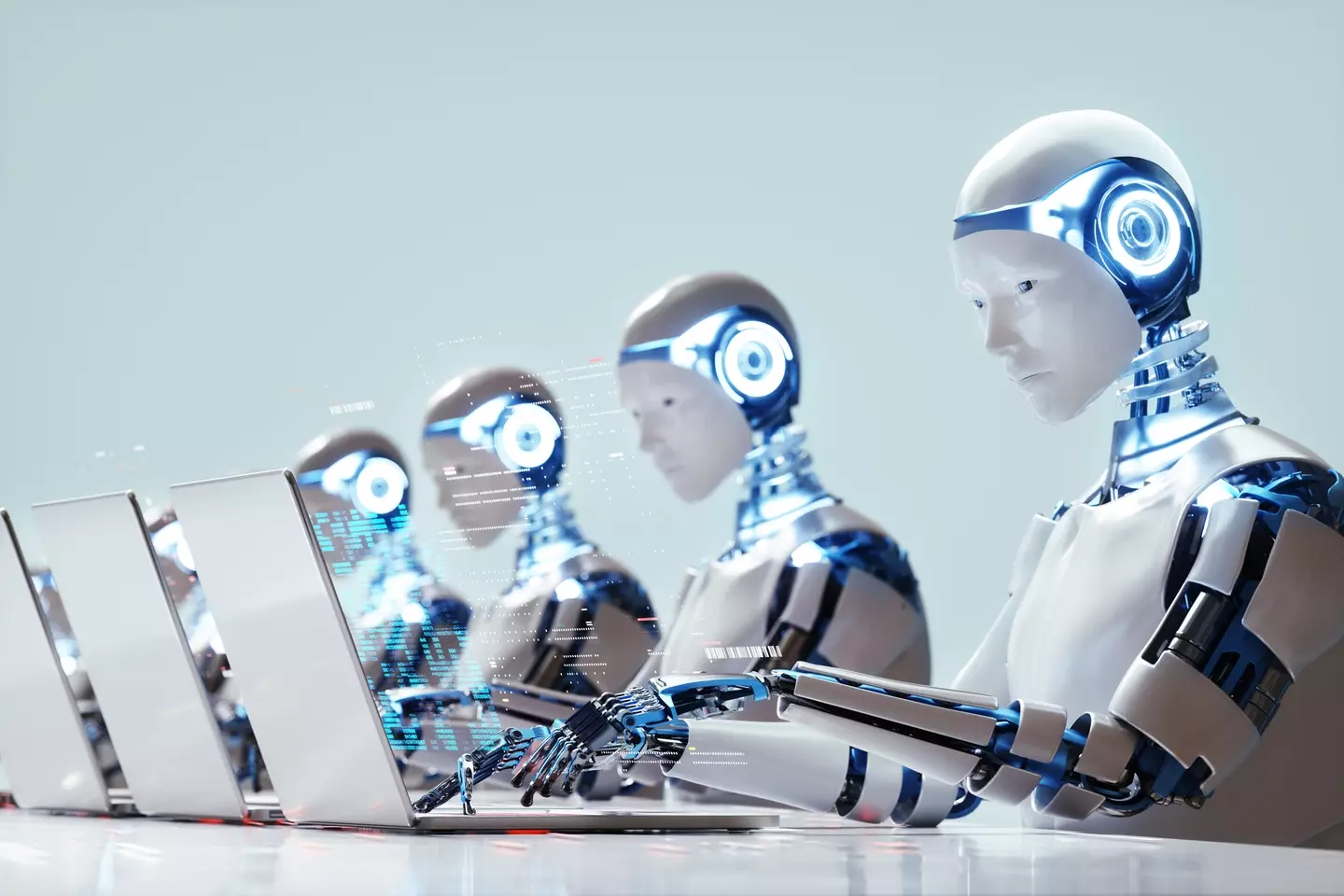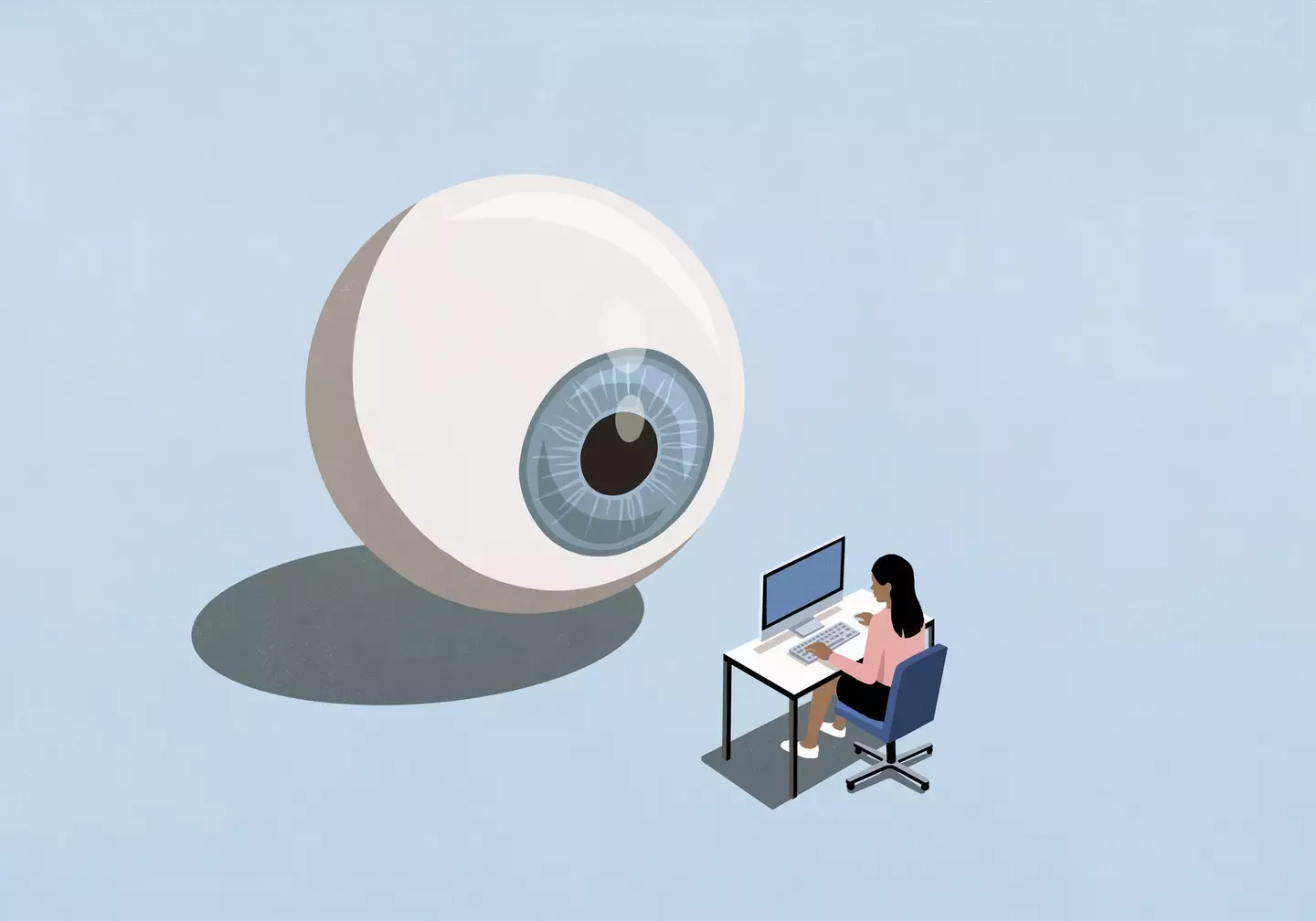
Despite optimism from those driving the AI push, experts have expressed their reservations regarding the future of the tool, claiming that it could easily change the world for the worse.
There's no doubting the popularity of artificial intelligence, especially since OpenAI's ChatGPT was released in November 2022, as millions of people integrate it into their daily lives.
If you use any form of new technology, it's almost impossible to entirely avoid AI in some capacity, as it has even infiltrated the search engines that most of the world relies on every single day.
There has rightfully been plenty of opposition to its unilateral deployment, which has been supported by world-renowned futurist Bernard Marr. Marr has outlined the seven 'terrifying' risks that AI has created in a worrying article for Forbes.
Jobs and redundancies
By far the most mainstream and present concern surrounding artificial intelligence is how it will affect most forms of employment in the coming years, as many are worried that they will soon be left without a job.
Advert

This has already proved to be the reality for some across the globe, as companies have used existing AI tools to make certain types of roles redundant, and that net will grow ever wider as models continue to improve.
"Having robots do all the work for us sounds great, but in reality, most people need a job to earn a living," Marr rightfully expresses, and while some including Elon Musk have floated ideas of 'universal high income' that would see governments subsidise populations in the wake of growing profits, that seems a bit too good to be true considering the current political climate.
Environmental and climate concerns
Alongside jobs, another major talking point when it comes to AI is the environmental impact, especially as the globe is already heading towards a climate tipping point.
Artificial intelligence is already an incredibly energy-intensive form of technology, and that will only increase as demand continues to grow. With many of the biggest companies already constructing major power-hungry data centers across the United States, it looks to be a worrying future for the planet.
Increases in surveillance
One perhaps under-discussed area that will be fuelled by the rise of AI is surveillance, as the technology makes it far easier for companies and governments to create a digital panopticon that tracks everybody's whereabouts.

Technology using AI that can track your exact location from a single picture is already in use for law enforcement, and Sam Altman's eyeball-scanning enterprise has people worried about how this data will be used.
Weaponization of AI
There are further fears that new technology will eventually be weaponized, with artificial intelligence being perfectly primed as a tool to make fighting easier.
Marr points out that robot dogs have already been deployed by the Ukrainian army for reconnaissance and logistics, and that will only continue to develop as AI is used for targeting and identification methods.
We haven't quite reached the point of autonomous AI taking to the battlefield itself, but one former US intelligence officer has speculated that certain nations are already using AI to enhance humans into genetically modified 'super soldiers'.
Threat to artists and creatives
The use of AI equally threatens the livelihoods of creatives who are seeing their work and skills effectively stolen by training models.
There are plenty of gaps and gray areas in regulation that don't account for how content is used in the training of AI models, meaning that many of the most popular tools can and allegedly are trained using content that is copyrighted, leading to generations that are effectively 'stolen'.
There was the popular 'Studio Ghibli trend', which caused records to be broken for ChatGPT, where users entered their photos to receive animated versions created in the style of the famous Japanese studio.
Anything used to train AI doesn't receive compensation, and we have even seen this affect websites across the internet as search traffic increasingly turns to artificially generated summaries instead of reading from the source directly.
Rise of misinformation
You only have to ask Elon Musk's Grok to see quite how prevalent misinformation generated by AI tools can become, as it has not only called its creator the biggest spreader of disinformation but has also dished out a fair amount itself.
It typically attempts to satisfy the user wherever possible, leading to answers that are created out of thin air in order to simply provide an answer, and worryingly sycophantic behavior that looks to agree with users who won't benefit from this.
It's a worrying trend when it comes to politics, as disinformation becomes increasingly harmful the more people rely on and trust AI tools.
Threat of AI to humans
Marr's final risk reveals his fears regarding the potential for AI to fight back against humans as it continues to gain sentience and automation.
A frighteningly realistic timeline ends in all of humanity being wiped out by an advanced and superhuman AI, but you only need to look as far as the risks that removing an AI's chain of thought could create.
Many of the most influential names have expressed that maintaining control of AI – especially when it comes to the potential for it to train itself – is paramount to the safety of the human race. Importantly, what could happen if these tools become smarter than us and are able to work for their own goals?
